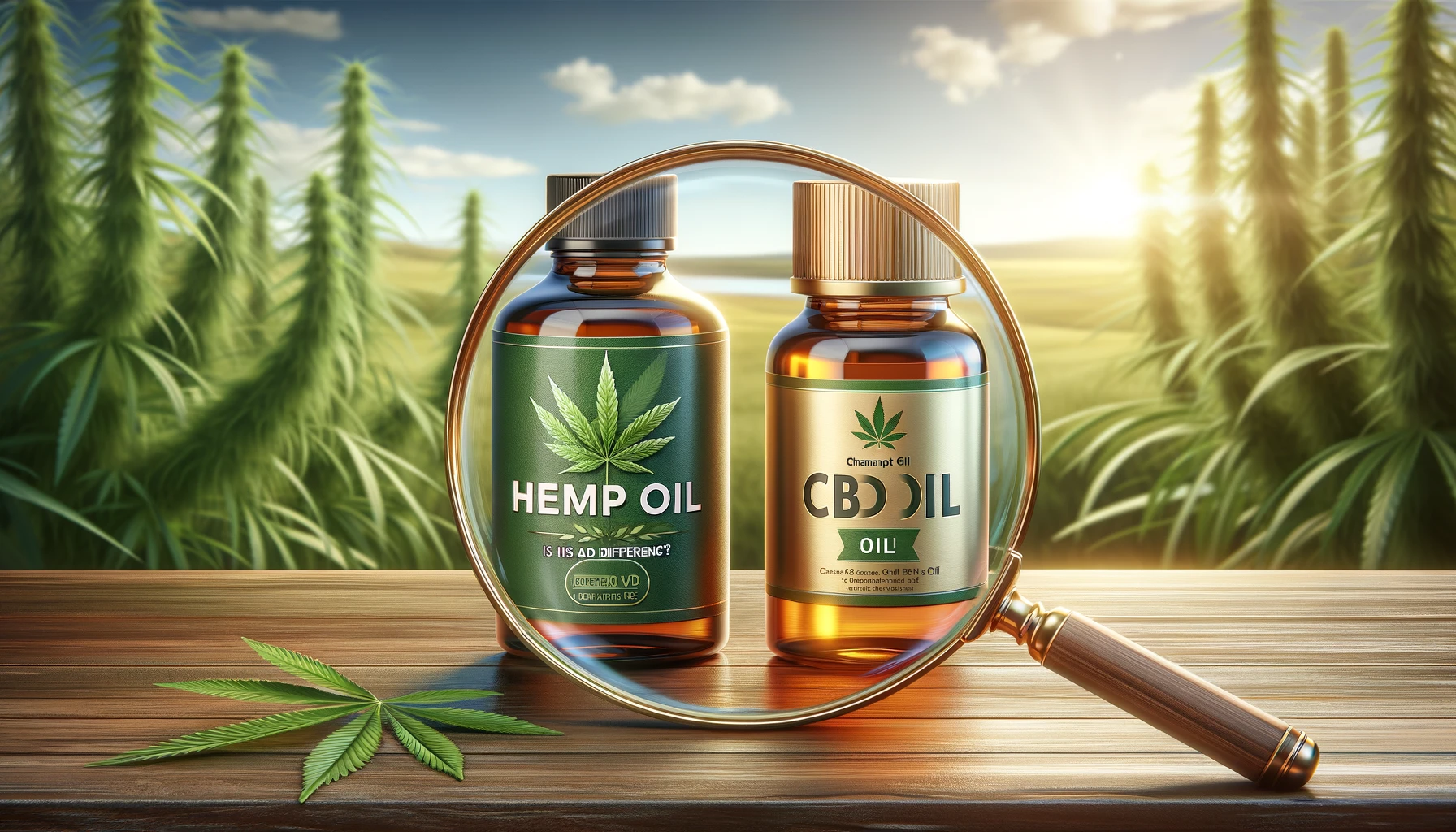1. Introduction
The world of natural wellness has increasingly turned its attention to the potential benefits of cannabis-derived products, particularly hemp oil and CBD oil. Despite their popularity, there is considerable confusion about what distinguishes these two products. This article aims to clarify the differences and similarities between hemp and CBD oil, addressing common misconceptions and providing essential information for consumers.
2. Understanding Hemp and Cannabis Plants
Botanical Characteristics
Hemp and cannabis are both part of the Cannabis sativa species but are distinct in their chemical composition and cultivation. Hemp is bred to have low THC levels (less than 0.3%), while cannabis plants cultivated for marijuana have higher THC content.
Historical Use and Cultivation
Historically, hemp has been cultivated for thousands of years for its fiber, seeds, and oil, used in textiles, food, and traditional medicines. Cannabis, on the other hand, has been both revered and vilified for its psychoactive properties, used for both medicinal and recreational purposes.
Legal Status
The legal status of hemp and cannabis varies globally. Hemp cultivation and the sale of hemp products have been legalized in many countries, including the United States, under specific regulations. However, the legal status of cannabis and its derivatives like CBD oil can be more complicated and varies by jurisdiction.
3. What is Hemp Oil?
Extraction and Production
Hemp oil, also known as hemp seed oil, is extracted from the seeds of the hemp plant. The oil extraction is typically done through cold-pressing, similar to how olive oil is produced.
Composition and Nutrients
Hemp oil is known for its nutritional value, rich in essential fatty acids like omega-3 and omega-6, as well as vitamins and minerals. It does not contain CBD or THC in significant amounts.
Common Uses and Benefits
Traditionally, hemp oil has been used in food and skincare products. Its high concentration of fatty acids makes it beneficial for nourishing the skin and providing a rich source of antioxidants.
4. What is CBD Oil?
Extraction and Production
CBD oil is derived from the flowers, leaves, and stalks of the hemp plant, where Cannabidiol (CBD) is more concentrated. The extraction process often involves using CO2 or alcohol to separate the CBD from plant material.
Composition and Properties
CBD oil contains Cannabidiol, a non-psychoactive compound known for its potential therapeutic properties. Unlike hemp oil, CBD oil may contain varying levels of CBD and can include full-spectrum, broad-spectrum, or isolate forms.
Therapeutic Applications
CBD oil is primarily known for its potential health benefits, including pain relief, anti-inflammatory properties, and anxiety reduction. It has gained significant attention in the medical community for its potential in treating various medical conditions.
5. Key Differences Between Hemp Oil and CBD Oil
Chemical Composition
The most significant difference between hemp oil and CBD oil lies in their chemical composition. Hemp oil is derived from seeds and is rich in nutrients but contains not CBD or THC. CBD oil is extracted from the plant’s flowers, leaves, and stalks and contains varying levels of CBD.
Health Benefits and Uses
While hemp oil is mainly used for its nutritional value and skincare benefits, CBD oil is sought for its potential therapeutic properties, including relief from pain, anxiety, and inflammation.
Legal and Regulatory Differences
Legally, hemp oil is less controversial and widely legal due to its negligible THC content. In contrast, CBD oil’s legality can be more complex, depending on the THC content and the legal status of cannabis in the region.
6. Consumer Considerations
How to Choose the Right Product
Choosing between hemp oil and CBD oil depends on the desired benefits. For nutritional purposes, hemp oil is ideal, while for therapeutic benefits, CBD oil may be more appropriate.
Labeling and Quality Assurance
It’s crucial for consumers to read labels carefully to understand what they are purchasing. Looking for third-party lab results can help ensure the quality and purity of the product.
Safety and Side Effects
Both hemp oil and CBD oil are generally considered safe, but CBD oil may interact with certain medications. It’s important to consult with a healthcare provider before starting any new supplement.
7. Current Research and Future Prospects
Scientific Studies on Hemp and CBD Oil
While hemp oil’s benefits are widely accepted in the nutritional sphere, the therapeutic potential of CBD oil is a subject of ongoing scientific inquiry. Studies have shown promise in areas such as pain management, anxiety reduction, and even potential neuroprotective properties. CBD’s anti-inflammatory effects are particularly of interest in treating conditions like arthritis and skin conditions like acne.
Emerging Trends and Potential Uses
The rapidly growing market for both hemp and CBD oil is witnessing an influx of innovative products ranging from food supplements to skincare products. As consumer interest grows, so does the exploration into more specialized applications, like CBD-infused beverages and hemp-based protein powders.
Limitations and Challenges in Research
Despite the burgeoning interest, research into CBD oil faces regulatory hurdles, particularly in regions where cannabis-related products are still heavily regulated. Moreover, the lack of standardization in product formulations poses a challenge to consistent and replicable research findings.
8. Conclusion
The debate between hemp oil and CBD oil centers on their distinct compositions and consequent health benefits. Hemp oil, rich in nutrients, is an excellent choice for those looking to enhance their diet, while CBD oil offers potential therapeutic benefits that are the subject of ongoing research. As the market for these oils continues to evolve, so will our understanding of their respective health benefits. Consumers are encouraged to make informed choices, considering their health needs and consulting healthcare professionals as needed.
9. Frequently Asked Questions (FAQs)
- How should I store hemp oil and CBD oil?
- Hemp oil should be stored in a cool, dark place to preserve its quality. CBD oil should also be kept away from direct sunlight and heat, with some products requiring refrigeration.
- Can I use hemp oil and CBD oil together?
- Yes, using hemp oil and CBD oil together is generally safe as they complement each other. Hemp oil can provide nutritional benefits while CBD oil offers therapeutic properties.
- Are hemp oil and CBD oil vegan-friendly?
- Most hemp and CBD oil products are vegan-friendly, but it’s important to check the product labels for additional ingredients.
- Can hemp oil and CBD oil be used topically?
- Yes, both oils can be applied topically. Hemp oil is commonly used in skincare products for its moisturizing properties, and CBD oil is used for its potential anti-inflammatory and pain-relief benefits.
- Is it safe to use hemp or CBD oil during pregnancy?
- The use of hemp or CBD oil during pregnancy is a topic that requires further research. Pregnant women should consult with a healthcare provider before using these products.

Meet the CBDOilWow Editorial Team, a collective of CBD experts dedicated to unraveling the world of cannabidiol. With a passion for wellness and a commitment to providing the latest insights, they serve as your trusted guides in exploring the potential of CBD, ensuring you make informed choices for a healthier, more balanced life.

Leave a Reply